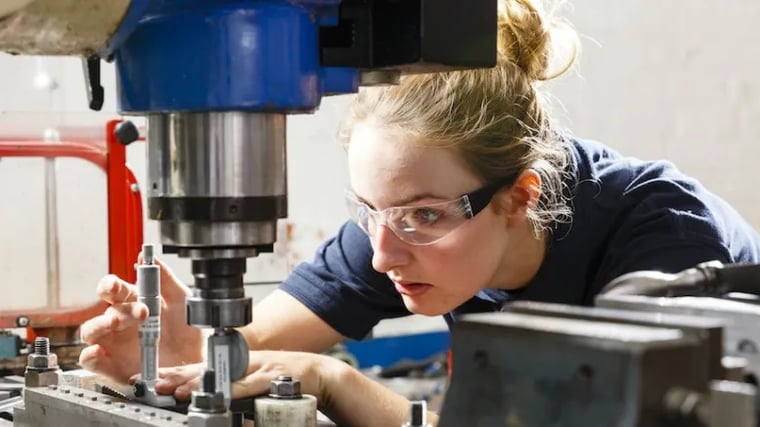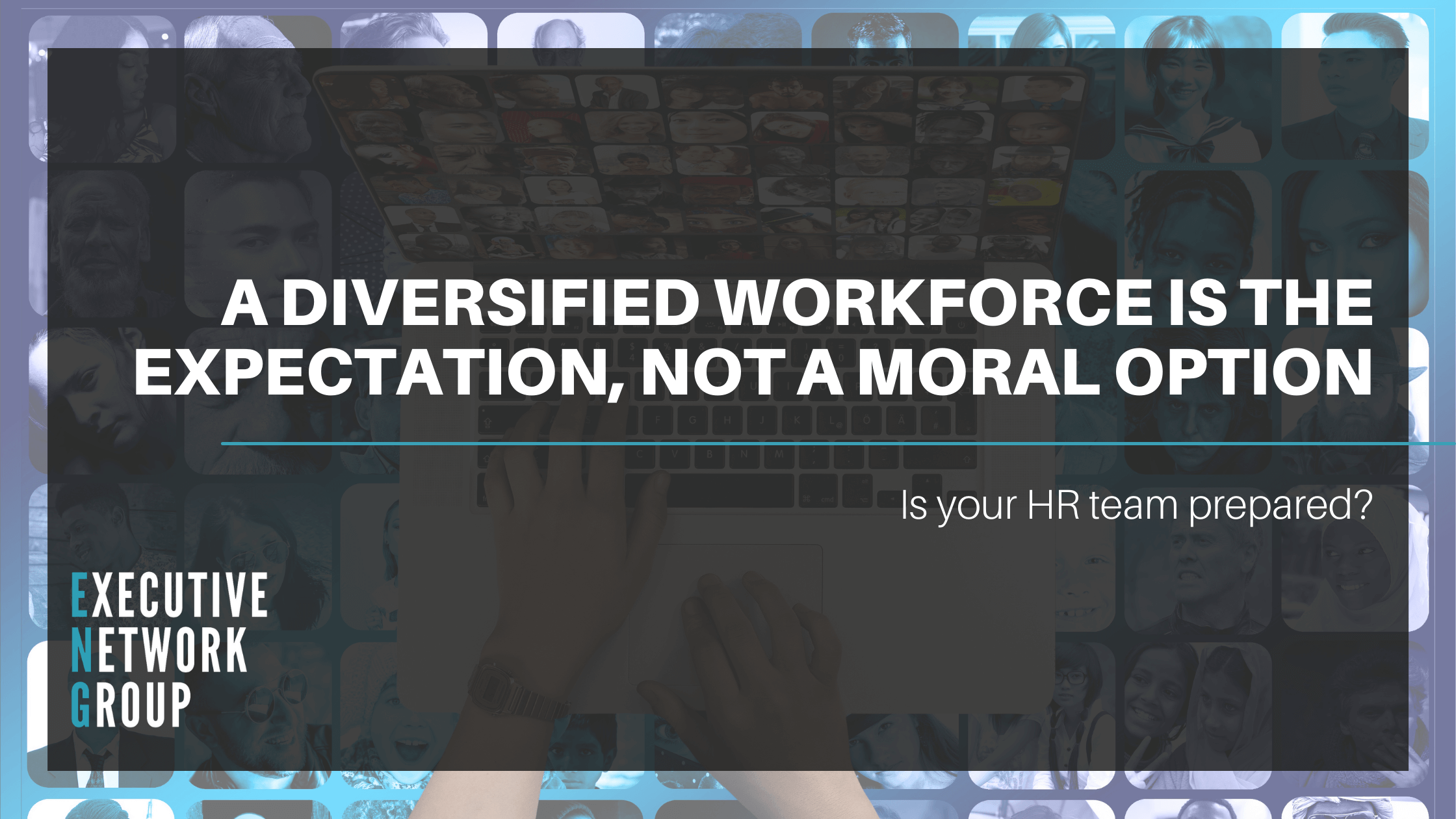Gender Diversity in Manufacturing
%20(1).png)
The manufacturing industry has historically been very male dominated, but in recent years, gender diversity in the sector has gained significant attention and leaders within the industry are becoming more aware of the need to promote equality and inclusivity in the workplace. Women can make a significant contribution to the industry – so how can businesses improve gender diversity?
It has been evidenced numerous times that diversity within a business can significantly improve productivity, profits, and morale. By implementing a diverse workforce, organisations can benefit from widened perspectives and experiences which can have a positive influence on problem solving and decision making. Employee retention, engagement and morale can be improved as employees are more likely to feel valued and included when they see people like themselves in leadership positions – which is additionally beneficial in manufacturing as the proportions of female employees tends to be lower.
Despite the benefits of having a gender-diverse workforce, women are still underrepresented in manufacturing with just 26% of the workforce in the UK being women. This is due in part to the perception that manufacturing is a dirty, dangerous, and unattractive industry, as well as a lack of exposure to manufacturing career options in educational settings where careers are often chosen and begin to be carved.
To address the issue and implement positive change, organisations in the sector can take steps to promote gender diversity in their workforce.

Develop a Diversity & Inclusion (D&I) strategy
Many organisations will have a D&I strategy in place, but how can business leaders ensure it’s resulting in real development? Create a gender pay gap analysis – recognise the reasons for the gaps and implement a plan to change it. By establishing measurable diversity goals and regularly tracking progress, organisations can ensure their strategy is having the desired results and rectify any issues when they arise. Creating employee resource methods to provide a forum for women in the workplace allows healthy conversation and honest feedback which can have a positive influence on implementing a D&I strategy and can often provide a varied insight.
Training & Education
Unconscious bias in the workplace when it comes to gender diversity is something that’s not always easy to counteract. Women haven’t always been allowed to work and earn money, it was only at the turn of the 19th century that women started being employed in different sectors and even in the modern day, women often have to fight for equal opportunities and pay to their male counterparts. By offering training to combat this unconscious bias, it encourages an open and safe workspace for women and ensures all employees are educated on the issue.
Providing mentorship and support to women who are interested in pursuing a career in manufacturing is one way organisations can drive positive change, which can include programs that provide training and development opportunities, getting involved with STEM projects and spending time in schools to educate young people about the prospects of a career in manufacturing.
Reverse mentoring involves leadership teams being mentored by staff members, so business leaders could ask women in the workplace what steps could be taken to allow them to reach their full potential and ensure they’re receiving the same recognition and opportunities as male counterparts.
Workplace culture
Organisations in the manufacturing industry can take steps to improve company culture by ensuring all employees, regardless of gender, feel safe and included when at work. By promoting diversity and inclusion through company policies and practices and ensuring changes are made when necessary, instead of just paying ‘lip service’. By implementing effective communication and training initiatives, as well as ensuring women have equal access to development opportunities as men, organisations can improve the workplace culture whilst improving diversity.

Recruitment practices
Removing unconscious bias from the hiring process can have a huge positive influence on attracting talent. Using gender-neutral language in job descriptions and avoiding gender stereotypes can increase the interest from women who can easily recognise that the organisation welcomes women too. Utilising recruitment partners that also participate in these practices can have a positive impact as CVs can be stripped of identifying information to reduce the unconscious bias from the hiring manager at the interest stage. Executive Network Group has a unique platform that harnesses diversity data to ensure a fair recruitment process called the 3D Framework ®. You can find out more about this here. Ensuring interview processes involve a level of diversity throughout reduce bias in the hiring process and can offer varied perspectives on the candidate.
Fostering work-life balance
Work-life balance can be a struggle for women that choose to be parents; they are often the primary caregiver and as a result have a higher level of responsibility for childcare. Businesses that are able to provide flexible working arrangements can reap the rewards from parents who are able to take advantage of this benefit around their parental responsibilities. It removes a layer of pressure for working parents and as a result, reduces stress. Offering wellness perks and mental health resources can also improve work-life balance for employees who may otherwise become overwhelmed with their work.
Promote female leadership
The gender gap at senior level is significant, with the FTSE 250 having just 15.6% of women board members, which although a small percentage, is an increase on past years. Establishing a leadership development program to identify and nurture female talent can improve diversity in senior level roles. Businesses can encourage women to apply for leadership positions through training and development opportunities, and create an inclusive culture where women feel empowered to share their ideas and take on leadership roles. Typically, women are less likely to ask for promotions or pay rises when compared with men at the same level, but by ensuring the culture is inclusive towards diversity, women will feel more comfortable to ask for what they deserve.
In conclusion, promoting gender diversity in manufacturing is not only ethically the right thing to do, but it can also have a lasting positive influence on business. By creating a more inclusive and diverse workforce, companies can improve employee engagement and retention, promote better problem-solving and decision-making, and ultimately achieve better business outcomes.
To discuss more about this topic or access other content from Executive Network Group, please contact lauren.webster@executivenetworkgroup.co.uk

